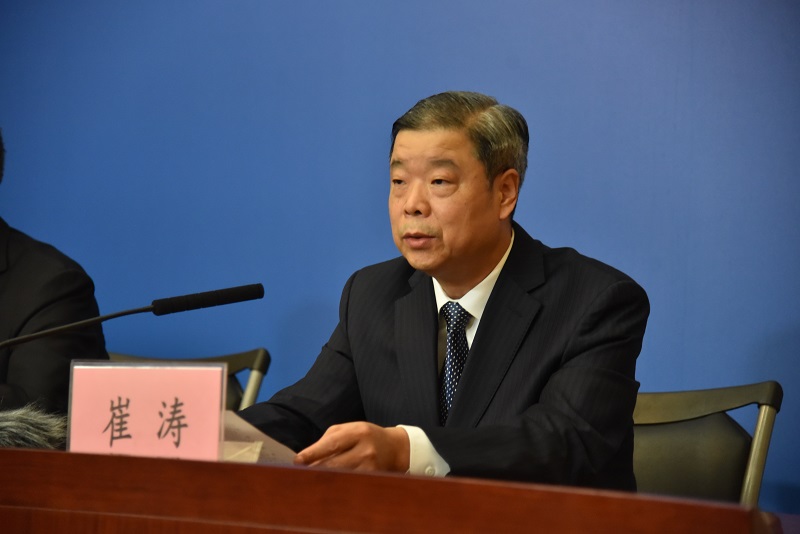The United States may tighten the cross -border mergers and acquisitions of pharmaceutical companies, and there is no winner after the gunshot
Author:Yaizhi.com Time:2022.09.23
The United States may tighten the cross -border mergers and acquisitions of pharmaceutical companies, and there is no winner after the gunshot
Source: amino observation/Fang Taozhi
In the subtle international situation, the domestic pharmaceutical industry has continued to receive the "care" of the United States.
On September 15th, the Biden government signed a new policy of tightening biopharmaceuticals, asking the US Foreign Investment Commission to strengthen risk review of biopharmaceuticals and biotechnology.
Although this is not aimed at domestic pharmaceutical companies, domestic pharmaceutical companies are inevitably affected.
On the day of the signing of the new bill, the US listed company F-Star issued an announcement that CFIUS demanded extension of its review by Chinese biopharmaceuticals.
On September 18, Kailei issued an announcement saying that the acquisition of the project of Snapdragon overseas, which was directly aborted due to "regulatory reasons".
Under the political game, the pharmaceutical market is gradually being wrapped in it, and the development of the domestic pharmaceutical industry will inevitably be affected.
But in fact, in today's globalization, there will be no winners behind this game.
/ 01 /
Sino -US pharmaceutical company that was stopped
In the past few days, two domestic pharmaceutical industry companies in Kailai and China Biopharmaceuticals have been hindered by overseas mergers and acquisitions.
It has been clear that CXO company Kaileying.
In February of this year, Kailei announced the acquisition of Snapdragon, the acquisition of Innovation Pharmaceuticals.
According to Kailaiying's ideas, the acquisition of Snapdragon can further expand its business overseas, while the latter can also use the Kailei Tianjin plant to increase the scale of commercial production. Each of the two takes what needs, and there is no problem.
However, this win -win business has not been completed smoothly. On September 18th, Kailei announced that the cooperation between the two was aborted due to regulatory reasons.
The so -called regulatory reasons are the blocking of the US Foreign Investment Commission (CFIUS) from the US Ministry of Finance: Snapdragon uses US government funds to develop its technology, and CFIUS does not want a Chinese company to have the technology.
CFIUS is an institution responsible for reviewing the US M & A transactions. It has the right to prevent foreign companies from investing in American companies on the grounds of national security.
The transactions that were previously stopped by CFIUS mainly involved computer systems, semiconductors, and other electronic products. Chemical or pharmaceutical -related technologies have not yet been listed as categories affected by CFIUS censorship.
However, on September 15, Biden signed an administrative order that gave instructions on the risk factors that CFIUS should consider when reviewing mergers and acquisitions.
Among them, a risk factor is:
Specific transactions affect the leading position of the national security field, including but not limited to microelectronics, artificial intelligence, biotechnology and biological manufacturing, quantum computing, advanced clean energy, climate adaptation technology.
The field of biotechnology and biological manufacturing is now listed, which means that CFIUS is getting wider and wider. From this point of view, CFIUS's obstruction of Kailee's mergers and acquisitions is not unprecedented.
In fact, the US government's sniper for the rise of biotechnology and biological manufacturing is not limited to CXO. Domestic pharmaceutical companies go to sea to merge the US BIOTECH business, and there may also be variables.
In June of this year, China Biopharmaceutical plans to acquire F-Star for $ 161 million. With the tightening of M & A transactions in the United States, this plan has to be postponed.
According to the recent news from F-Star, CFIUS's review of the transaction is expected to last 45 days. Forty -five days later, the United States will get an answer to the reaction of domestic drug cross -border mergers and acquisitions of overseas pharmaceutical companies.
/ 02 /
Domestic pharmaceutical companies go to sea to pick up the difficulty upgrade
For domestic biopharmaceutical players, if the United States is tightened by cross -border mergers and acquisitions, it is definitely not good news.
First of all, picking up the leakage texture abroad is a shortcut for many domestic pharmaceutical companies.
In the past period of time, the global biotechnology market has declined, and the price of many pharmaceutical companies' excellent pipelines has dropped to a reasonable range. Especially many overseas Biotech, the valuation is much lower than the domestic BIOTECH.
At the same time, there is abundant cash flow in the hands of domestic pharmaceutical companies. At this time, choosing to purchase some excellent assets is undoubtedly a cost -effective business. Because of this, many domestic players have come to pick up leaks overseas.
For example, after January this year, Qiming Medical completed the acquisition of Cardiovalve, a catheter two -pointed valve innovation therapy company; for example, Four Ring Pharmaceuticals announced in January that its subsidiaries have acquired all the equity of GeNESIS in the United States and expanded the expansion Company's medical beauty product pipeline.
It can be said that cross -border mergers and acquisitions are the most convenient and fast choice for many domestic pharmaceutical companies to broaden pipelines.
Today, as the US policy tighten, this quick channel is closed, and for domestic pharmaceutical companies, it is naturally a high -quality "purchase" channel.
Secondly, for domestic pharmaceutical companies that want to go to sea, the acquisition of overseas pharmaceutical companies is also a good springboard. Compared with domestic pharmaceutical companies, overseas pharmaceutical companies have a better understanding of various systems such as market operations and new drug listings in the United States.
Through the method of mergers and acquisitions, it can be better completed with its strength to a certain extent. This is also a good choice for domestic pharmaceutical companies to high -efficiency layout.
Nowadays, the tightening of cross -border mergers and acquisitions has indeed increased the difficulty of going to sea from domestic pharmaceutical companies to a certain extent. Of course, there are always two sides of everything. From another perspective, the tightening of US policies is not a bad thing.
On the one hand, the tightening of the US cross -border mergers and acquisitions will force the progress of China's innovative medicine.
The reduction of channels to introduce excellent pipelines abroad is bound to test the self -research ability of innovative drug players. And this may be forced to force domestic innovative pharmaceutical companies. There is no backward retreat from the ability to develop innovative drugs, and otherwise it continues to move forward.
In fact, the research and development progress of many innovative drugs in my country has gone at the forefront of the world, and its dependence on overseas has gradually weakened.
On the other hand, the tightening of cross -border mergers and acquisitions will also promote domestic M & A ecosystems to mature.
Since it is not possible to acquire cross -border acquisitions, large pharmaceutical companies that do not lack money in their hands will naturally go to China to find high -quality targets, which will promote domestic M & A ecosystems to mature.
In fact, domestic major pharmaceutical companies and domestic biotech
The number of examples of Zhu Lianjin is also increasing. In February of this year, the Shiyao Group acquired Mingkang creatures; August this year, China Resources Shuanghe acquired 50.11%equity of Shenzhou Bio.
In general, it is natural to be able to leak the development of overseas pharmaceutical companies to accelerate the development of Chinese innovative drugs. However, the development of Chinese innovation medicines is not that it is not possible to leave the United States. After this road is blocked, domestic innovative drugs will still move forward.
/ 03 /
There is no winner in the pharmaceutical market that has been accepted by politics
The United States will not be affected by restricting the development of the domestic pharmaceutical industry. Take the supply chain backflow, for example, the development of innovative drugs in the United States is not necessarily better than disadvantages.
In the context of the increasingly lower return rate of pharmaceutical research and development, pharmaceutical companies have to make a penny into two halves. The rise of the domestic CXO industry is essentially because China's labor costs are more advantageous.
China's head CXO per capita cost is less than one-third of the US head CXO. In 2021, the per capita cost of transnational CXO was US $ 100,000 to 120,000, and the per capita cost of major domestic CXO companies was 30,000 to 40,000 US dollars.
It is not difficult to imagine that if the supply chain returns to the United States, the cost of American pharmaceutical companies will increase significantly.
As we all know, the United States has been troubled by high drug prices for many years. If the supply chain returns to the United States, the cost of drug development will continue to grow. In the end, it is the United States who pays for high -priced and innovative drugs.
At the same time, restricting the development of domestic biotechnology companies will also bring the same side effects. Medicine has no borders. In the future, China's innovative medicines will not only benefit the Chinese people, but also bring the gospel to more American people.
At present, this situation has occurred. Many domestic innovative pharmaceutical companies have aimed their attention to the United States. They brought not only ME TOO innovative drugs, but also innovative medicines that meet the needs of clinically not met, such as "orphan drugs."
Restricting the development of China's biotechnology industry will inevitably make American patients lose some of the earliest opportunities to use innovative drugs. At the same time, the lack of the "catfish" in China Innovation Pharmaceuticals is also not conducive to the "control" of the American Innovation Pharmaceutical Market.
At the moment of globalization, the development of China's pharmaceutical industry will benefit the global market. Blindly interfere with political means, which is affected by everyone, not only Chinese companies.
Disclaimer: This article is the content of Yaozhi.com, and the copyright of the pictures and text belongs to the original author. The purpose of reprinting is to pass more information, which does not represent the viewpoint of this platform. If the content, copyright and other issues are involved in the work, please leave a message on this platform, and we will delete it as soon as possible.
- END -
During the epidemic period, you can call this psychological assistance hotline!

Photography: Liu ChuanvJining News Network (Reporter Wang Xinrong) How to psycholo...
"Depression, can be good" 丨 "Depression Self -Rescue Manual"

Author | Heart is a lonely hunterLook, this is the life of Wuyun denselyMaybe you ...